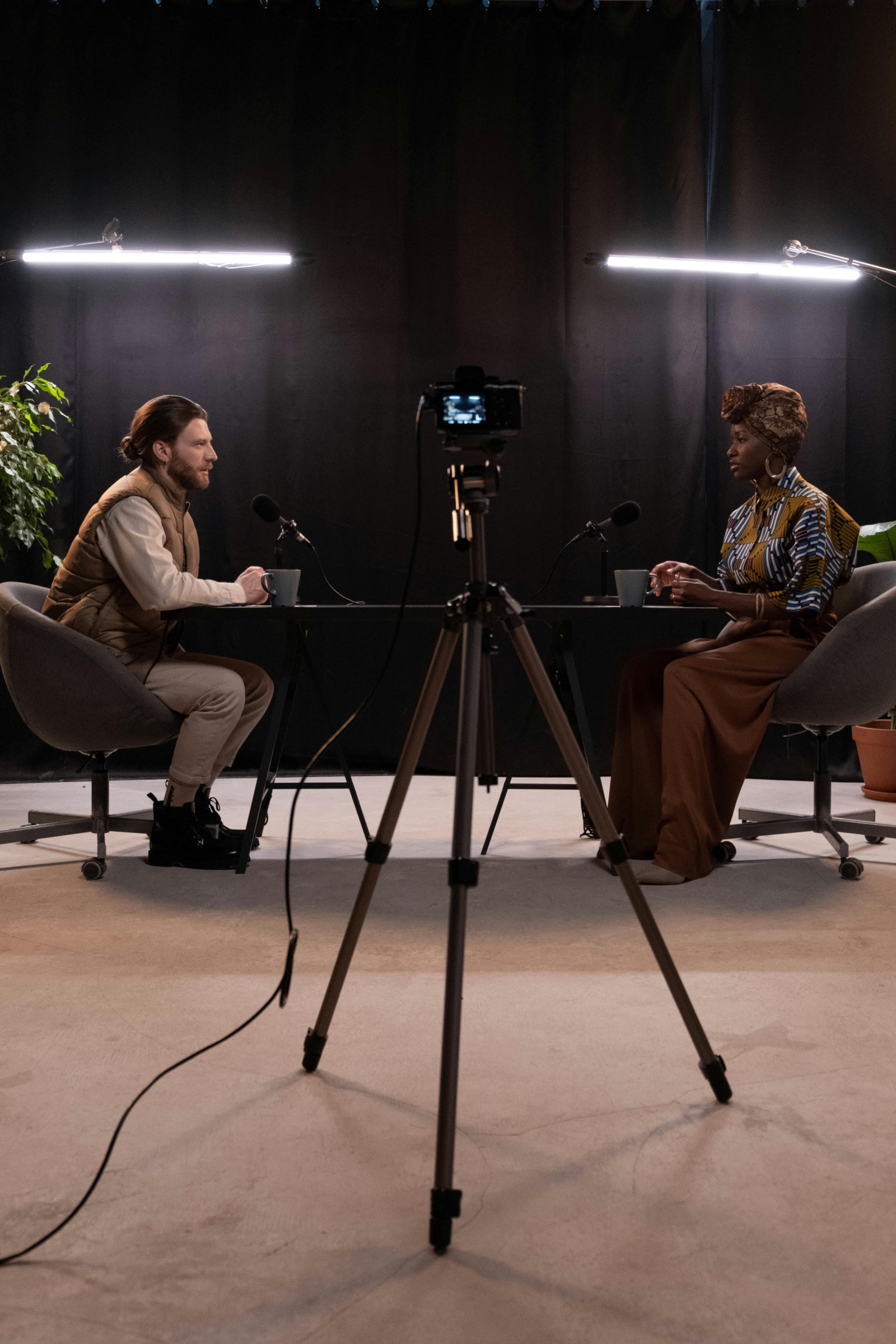Audio is not enough: Why audio platforms and creators are betting on video

Photo: cottonbro studio

Video may have killed the radio star, but digital audio platforms and creators increasingly see video as a beneficial supplement to podcasts and audiobooks. From ghost podcasts filmed for social media advertising to podcasts following in the footsteps of TV and film and Amazon opening the IP tap for its Audible to Prime Video pipeline, video crossing over to audio — and vice versa — is a trend that will only continue.
To grow subscriptions and diversify revenue, audio platforms have to diversify their content offerings, which means becoming more agnostic about format. Creators, meanwhile, need effective ways to market their audio content. Rather than shy away from video, Audible, Spotify, and podcasters are all looking for ways to leverage the format as much as they can.
Audible uses video to improve audiobook recommendations
Rounding out their strategic calculation to own the means of transmedia production, Amazon-owned Audible is now testing a feature that recommends audiobooks based on users’ Prime Video viewing behaviour. Audiobooks may not have the same recommendation problem that podcasts do, but in order to compete with Spotify’s aggressive audiobook bet, Amazon must leverage its strengths to get the edge.
According to Andy Tsao, Audible’s Chief Product and Analytics Officer, “There is a natural synergy between TV, movies, and books, and we see that clearly in how our customers engage with content on Audible.” In other words, it is not just the platforms and creators that are increasingly format-agnostic, but consumers, too — the same “story” can be consumed in whichever format the consumer prefers. Already having a leg up on Spotify when it comes to video content means Amazon can use video to convert Prime Video users to audiobook users, further strengthening the connection between both formats in terms of IP and user behaviour.
Featured Report
Defining entertainment superfans Characteristics, categories, and commercial impact
Superfans represent a highly valuable yet consistently underleveraged audience segment for the entertainment industry. What drives this disconnect is the fact that – despite frequent anecdotal use of the term – a standardised, empirical definition remains absent, preventing companies from systematically identifying, nurturing, and monetising th...
Find out more…Spotify enters the video advertising arena
Unfortunately for Amazon, Spotify is not content to remain an audio-only platform. Adweek reports that 500,000 video podcasts have already been uploaded to the platform just this year. According to Ann Piper, Spotify’s head of sales in North America, “We’re ready to play in the digital advertising pool and compete for more than audio budgets. Now that there is more video being created on the platform, we want to connect brands with users when they are looking at their screen.”
While Amazon does not have to worry about Spotify getting into the subscription video on demand (SVOD) game any time soon, the company does have to be aware of how Spotify is leveraging video to drive people to podcasts and audiobooks while generating more advertising revenue. As the Prime Video to Audible pipeline tries to foster a better cross-format recommendation system, Spotify’s video content is looking more and more like YouTube’s.
Lights, camera, action for podcasters
The more that Spotify leans into video, the more it starts to look like the company’s sights are set on YouTube. Spotify has had video podcasts on the platform since July 2020, and in March 2024, Spotify announced their UK rollout of video-based learning courses. Both types of video content represent some of the best performing content on YouTube, which is why so many podcast creators are getting camera ready, according to the New York Times.
The reality is, even though broadcast audio (i.e., radio) may be losing listeners to digital audio (i.e., podcasts and audiobooks), digital audio offers so many more cross-format opportunities. Pretty soon, we may be hard-pressed to find podcasts without video accompaniment and audiobooks without some video-based recommendation, whether through Prime Video or Spotify advertising. Rather than video killing the podcast or audiobook star, video may in fact help them thrive.

The discussion around this post has not yet got started, be the first to add an opinion.